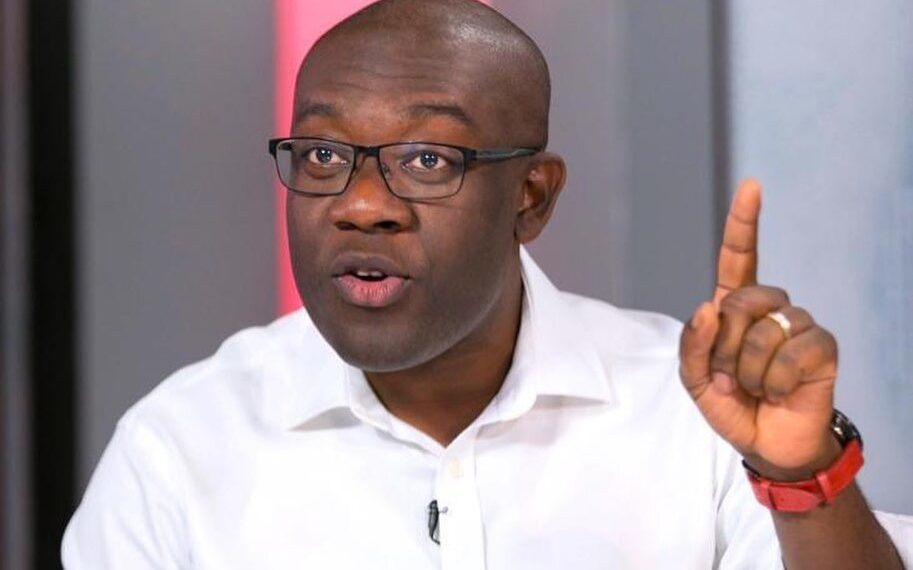adverts
The Bank of Ghana’s (BoG) decision to withdraw more than $4.5 billion (GH₵60 billion) from circulation in an aggressive sterilisation drive has sparked fierce backlash from the Minority in Parliament, who warn that the policy is suffocating Ghana’s fragile economic recovery.
Kojo Oppong Nkrumah, Ranking Member on the Economy and Development Committee and MP for Ofoase Ayirebi, accused the Central Bank of “starving businesses of desperately needed capital” while hiding behind outdated economic orthodoxy.
According to him, since January 2025, the BoG has sterilised over GH₵60 billion under the assumption of excess liquidity in the economy. In monetary policy terms, sterilisation means withdrawing money from circulation to slow consumer demand and suppress inflation.
adverts
But the minority argues that the magnitude of the sterilisation is excessive and counterproductive. The sterilised funds, they noted, represent nearly half of the Ghana Stock Exchange’s total market capitalisation of GH₵130 billion.
“This is not a trivial amount. If you sterilise GH₵62 billion and compare it to the stock market capitalisation, you begin to understand the scale of the problem,” Oppong Nkrumah said. “We cannot just continue packing liquidity at the Bank of Ghana while businesses starve of capital.”
While the BoG maintains that sterilisation has helped to ease inflationary pressures, the Minority contends it is only a temporary fix with damaging long-term consequences.
Oppong Nkrumah warned that once sterilised funds are eventually released, inflationary pressures will rebound.
“This old economic orthodoxy of just sterilising money and packing it at the Bank of Ghana is not sustainable. Eventually, when you release that money back into the economy, inflation will pick up again,” he said.
The Minority cautioned that the policy is worsening Ghana’s already dire financing environment. With lending rates averaging above 30 per cent, most businesses—particularly small and medium-sized enterprises (SMEs)—have little access to affordable credit.
“This policy is costing us jobs and growth. When you lock up this amount of money at the Central Bank, you starve the private sector, which is the real engine of growth,” Oppong Nkrumah stressed.
Entrepreneurs who could otherwise expand operations, invest in technology, or hire more workers are instead facing a severe credit drought.
To mitigate the damage, the minority is proposing that part of the sterilised funds be redirected into productive channels, such as the Venture Capital Trust Fund, which provides equity financing to startups and SMEs without the burden of high-interest loans.
They also suggested channelling resources into the Ghana Stock Exchange through zero-coupon equity financing, a move that could boost production capacity, enhance liquidity, and create jobs.
“Young people with great business ideas could have access to this equity capital. If these funds go into the Venture Capital Trust Fund, they can be deployed to help entrepreneurs expand their operations, create jobs, and grow the economy,” Oppong Nkrumah proposed.
Economists have also warned that sterilisation, while effective in cooling inflation, risks deepening unemployment, suppressing consumer confidence, and stifling private sector growth if pursued too aggressively.
Given the scale of the BoG’s liquidity mop-up relative to Ghana’s financial market, critics fear the policy could distort liquidity conditions and worsen access to credit across the banking sector.
Oppong Nkrumah urged the government and the Central Bank to rethink their approach, stressing that fighting inflation must not come at the expense of economic dynamism.
“What we need is a broader and better strategy that supports growth while managing inflation,” he said. “Simply mopping up liquidity without parallel growth-enhancing measures is short-sighted.”
The minority is warning that unless the sterilisation programme is redesigned, Ghana risks trading temporary inflation control for long-term economic stagnation.
Click the link Puretvonline.com | WhatsApp Channel to join the WhatsApp channel
GOT A STORY?
Contact/WhatsApp: +233243201960 or manuelnkansah33@gmail.com


